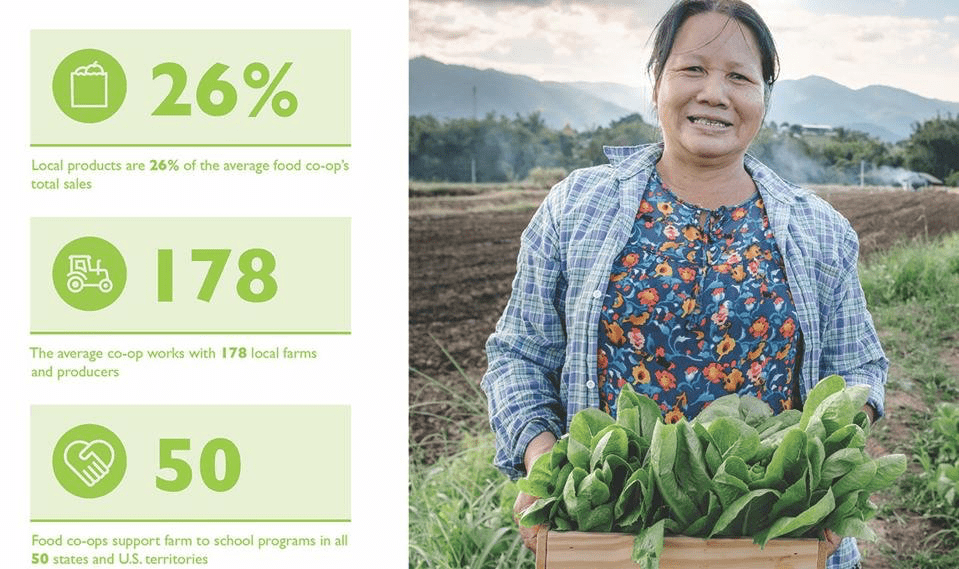Jul 29, 2022
How Good Food Enterprises Are Thriving In The Covid-19 Era

Food cooperative home delivery in Florida. Image sourced from the National Cooperative Grocers.
Editor’s Note: With painful disruptions caused by fluctuating demand, shipping bottlenecks, and labor shortages, supply chains are becoming a new topic of conversation at dinner tables across the country. And, it’s no secret that they’re faltering. Solutions like these are exactly how cities can help ensure that its most vulnerable have consistent access to nutritious, affordable food. Learn more about food supply chains and how cities can ‘build back better’.
Written By: Errol Schweizer
There is plenty of bad news about the food industry lately. From profit-driven price inflation, to worker deaths from Covid-19, to widespread supply chain shortfalls, the last few years have been brutal to everyone who needs an efficient and sustainable food supply. But there is good news too, and stellar enterprises that prove that better food systems can be developed under the most competitive and chaotic circumstances.
Food retail is highly consolidated, enabling big chains to raise prices, pay low wages and glean huge profits without accountability. Over two-thirds of food retail dollars are spent in a handful of these national chains. Many bustling metropolitan areas, including Denver, Austin and South Florida, are dominated by 1 or 2 quasi-monopolies. Walmart has greater than 50% market share in hundreds of municipalities. Yet alternatives continue to sprout.

Local and sustainable economies are part of the cooperative DNA. Image sourced from the National Cooperative Grocers.
National Co+op Grocers (NCG) is a business services cooperative based in the Twin Cities. NCG enables community-owned grocery stores, or food cooperatives, to compete with some of the largest retail chains in the country. NCG does this by negotiating competitive pricing and product assortments with brands and wholesalers, as well as by providing operations, finance, human resources and store development support services for member cooperatives. Over 215 locations across 38 states cooperate through NCG, generating over $2.5 billion in annual sales and serving over 1.3 million member-owners.
Food cooperatives have a deep and rich history. According to historian John Curl, cooperatives were key to the development of the Labor and Populist movements. Cooperatives have also been crucial to developing self-sufficient and sustainable economies in Black communities, as scholars such as WEB Du Bois, Monica White and Jessica Gordon-Nembhard have rigorously documented.
Cooperatives are also an international phenomenon. There are thousands of cooperatives across the globe, with hundreds of millions of members. According to the International Cooperative Alliance, a cooperative is “an autonomous association of persons united voluntarily to meet their common economic, social, and cultural needs and aspirations through a jointly-owned and democratically controlled enterprise” and are guided by 7 unifying principles. Food cooperatives have even become market share leaders in some European countries. While lax enforcement of U.S. antitrust laws such as Robinson-Patman have enabled the dominance of corporate food conglomerates, retail food cooperatives have carved out a valuable niche.


